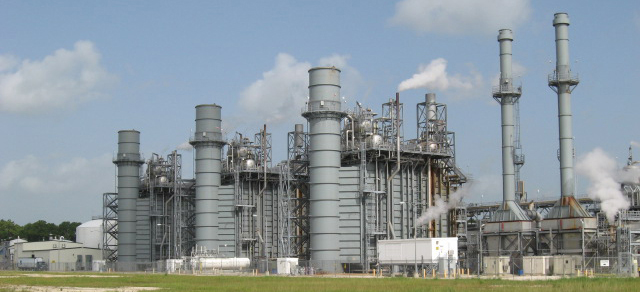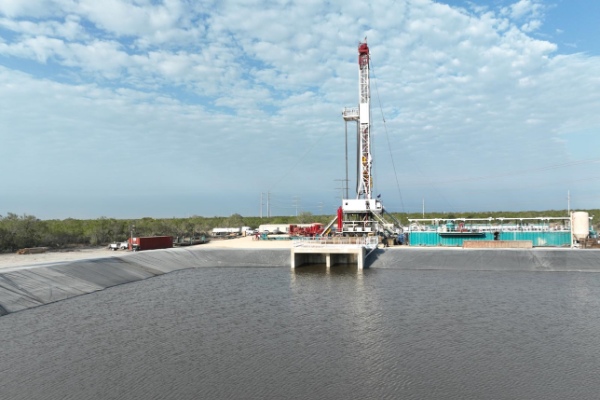Calpine Selected to Advance Major Carbon Capture Project at Baytown Facility
Published Jan 02, 2024 by Hailea Schultz
Houston-based Calpine was selected by the Department of Energy (DOE) to build a commercial-scale carbon capture and storage (CCS) project in Baytown – advancing the region’s position as the energy capital of the world.
Through a cost-sharing agreement, Calpine will receive up to $270 million to capture and store approximately two million metric tons of carbon dioxide every year using Shell’s CANSOLV solvent. This amount is equivalent to the annual emissions of nearly 450,000 gasoline-powered cars, according to the DOE.
The project will help reduce the intensity of emissions from turbines and auxiliary boilers at a design capture rate of 95% at the company’s 896-megawatt facility – Baytown Energy Center, which provides steam and power to Covestro chemicals manufacturing facility as well as power to the Texas electric grid.
The DOE states that once captured, the carbon dioxide will be transported and sequestered in saline storage sites on the Gulf Coast. The project might also utilize greywater to minimize freshwater consumption.
“We are very pleased and honored that the DOE has recognized the quality of this project and the strength of Calpine’s CCS program,” said Thad Hill, CEO of Calpine Corporation in a press release. “Carbon capture is an important technology for decarbonizing the electricity sector and the economy.”
The Baytown project is part of the DOE’s Carbon Capture Demonstration Projects Program, an effort to accelerate the deployment of carbon management technologies and the creation of manufacturing jobs to support the clean energy sector. The project aims to boost these efforts, expecting to create 22-26 permanent jobs and 1,500,000 hours of construction jobs, according to the DOE.
This project follows the recent announcement of the DOE selecting Houston as the site of one of the seven regional clean hydrogen hubs in the nation.
“Cogeneration facilities like Baytown provide firm, dispatchable, non-duration-limited electric and steam supply to reliably power the electric grid and industry. Facilities like Baytown will be part of our energy infrastructure for the foreseeable future, and now with CCS technology, we can decarbonize them. Calpine would like to thank the DOE as well as our state and local officials and community partners for their ongoing support,” said Caleb Stephenson, Calpine EVP Commercial Operations.
Discover more about Houston’s role in the energy transition.
 Business Announcements
Business Announcements




















